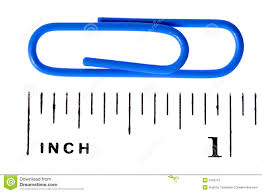记忆方法
记忆“inch”这个单词,可以将它与“inch-worm”(蚯蚓)联想起来。因为“inch-worm”的移动通常是缓慢而一寸寸地进行的,这有助于记住“inch”作为“一寸”或“英寸”的单位。
以上内容由AI生成, 仅供参考和借鉴
中文词源
inch 英寸
来自拉丁语uncia,一,十二分之一,词源同one.即十二分之一英尺,一英寸。比较ounce.
英语词源
- inch
-
inch: [OE] Inch and ounce both mean etymologically ‘one twelfth’, but while this ancestral sense has largely been lost sight of in the case of ounce, for inch it remains in force. The words’ common ancestor is Latin uncia, a term for a ‘twelfth part’ derived from unus ‘one’. This was borrowed into prehistoric Germanic as *ungkja, but it has not survived in any other Germanic language but English.
=> one, ounce - inch (n.1)
- "linear measure, one-twelfth of a foot," late Old English ynce, Middle English unche (current spelling c. 1300), from Latin uncia "a twelfth part," from root of unus "one" (see one). An early borrowing from Latin, not found in any other Germanic language. Transferred and figurative sense of "a very small amount" is attested from mid-14c. For phrase give him an inch ... see ell.
- inch (n.2)
- "small Scottish island," early 15c., from Gaelic innis (genitive innse) "island, land by a river," from Celtic *inissi (cognates: Old Irish inis, Welsh ynys, Breton enez).
- inch (v.)
- "move little by little," 1590s, from inch (n.1). Related: Inched; inching.
权威例句
- 1. We are prepared to fight for every inch of territory.
- 我们时刻准备着为每一寸领土而战。
- 2. His life was saved by a quarter-inch-thick bullet-proof steel screen.
- 多亏一块1/4英寸厚的防弹钢板,他才捡了条命。
- 3. The bullet had passed less than an inch from Andrea's heart.
- 子弹在离安德烈亚的心脏不到一英寸的地方穿过。
- 4. Every inch of his arms and legs was ulcerated.
- 他四肢全都溃烂了。
- 5. Make a slit in the stem about half an inch long.
- 在树干上切一道大约半英寸长的口子。

